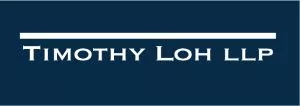

Timothy Loh LLP is a law firm practising Hong Kong and International Law. It is globally recognized in M&A, Financial Services, Hedge Funds, Private Equity, Investment Funds and Banking & Finance. The firm’s client matters have featured in news publications including Bloomberg, The Wall Street Journal and The Financial Times.
This article answers some of the most common questions and addresses some of the most common concerns which firms applying
Hong Kong Corporate/Commercial Law
The Securities and Futures Ordinance ("SFO") requires firms who carry on a business in a regulated activity ("RA") or who hold themselves out as so doing to be licensed. Any firm which actively markets its services to the public in Hong Kong will be deemed to be carrying on a business in a regulated activity if the services it provides constitute that regulated activity. The SFO further requires that each individual who performs a regulated function in relation to a regulated activity carried on as a business or who holds himself out as performing such a function be licensed.
Under the SFO, there are currently 10 types of regulated activities. The more commonly encountered ones are:-
Common Regulated Activities
Examples
SFC Type 1 License
Dealing in Securities
Securities brokerage firms and firms looking to market their own funds or distribute funds managed by other fund managers will normally be carrying on Type 1 regulated activity (RA1) and thus may require an SFC Type 1 license.
However, there are specified circumstances where exemptions (e.g. professional investor exemption) may apply to exempt a firm from having to apply for an SFC Type 1 license.
SFC Type 4 License
Advising on Securities
Investment advisory firms which provide securities advice to clients will normally be carrying on Type 4 regulated activity (RA2) and thus may require an SFC Type 4 license.
However, there are specified circumstances where exemptions (e.g. group company exemption or incidental exemption) may apply to exempt a firm from having to apply for an SFC Type 4 license.
SFC Type 9 License
Asset Management
A hedge fund manager will normally be carrying on Type 9 regulated activity (RA9).
However, some asset managers may require an SFC Type 1 license for dealing in securities rather than a SFC Type 9 license for asset management, depending on the nature of activities to be undertaken by the asset managers.
Some of the SFC licenses have sub-categories. For example, an SFC Type 6 license (advising on corporate finance) will not normally allow the holder to carry out activities as a sponsor for a listing on the Stock Exchange of Hong Kong or to advise on takeovers and mergers governed by the Code on Takeovers and Mergers unless an application is made specifically for an SFC Type 6 license to act as a sponsor or to act as a takeovers adviser.
Under the SFO, each regulated activity is subject to prescribed exemptions. An exemption applicable to one type of regulated activity does not necessarily constitute an exemption from a different type of regulated activity. At the same time, each regulated activity has a defined scope and any person who falls outside that defined scope would not need a license to carry on a business in that regulated activity. A common misconception is that a hedge fund manager who deals only with professional investors is exempt from licensing. This is untrue.
The SFC's Guidelines on Competency set out the qualifications which are required for an SFC responsible officer. These requirements cover industry knowledge, industry experience, management experience and regulatory knowledge. In a typical scenario, an individual with a CFA or MBA qualification will meet industry knowledge requirements and an individual with 3 years of relevant experience in the past 6 years will meet industry experience requirements. The ideal relevant experience would comprise the performance of job duties identical to those proposed to be undertaken in the licensing application within a firm licensed or registered with the SFC.
The Hong Kong Securities Institute ("HKSI") offers exams which the SFC recognizes for the purpose of determining whether an SFC licensed representative or an SFC responsible officer candidate meets regulatory knowledge and industry knowledge requirements. LE Papers 1 to 6 are local regulatory framework papers and LE Papers 7 to 12 are recognized industry qualification papers. LE Papers 1 and 7 are the basic exams for all SFC licensed representative candidates. LE Papers 2 to 6 are exams for SFC responsible officer candidates. LE Papers 8 to 12 are exams for SFC licensed representative candidates and SFC responsible officer candidates depending on the type(s) of regulated activities engaged in. Individuals holding a business degree or a professional designation such as a Chartered Financial Analyst ("CFA") are likely to be exempt from the recognized industry qualification papers. Individuals who have been licensed with the SFC in the past 3 years may be eligible for exemption from the local regulatory framework papers but this will depend on individual circumstances.
Under the SFO, the SFC must be satisfied that an applicant for an SFC license is "fit and proper" before it grants a license. The Fit and Proper Guidelines issued by the SFC set out at a high level the basic criteria upon which the SFC will grant a license. The criteria fall into 4 categories, namely:
The SFC has issued a wide range of codes, circulars and guidelines to provide further guidance in respect of how an applicant can meet these basic criteria. The most significant of these are the Code of Conduct for Persons Licensed by or Registered with the Securities and Futures Commission ("SFC Code of Conduct"), the Fund Manager Code of Conduct ("FMCC"), the Corporate Finance Adviser Code of Conduct and the Management, Supervision and Internal Control Guidelines ("Internal Control Guidelines").
At a high level, an SFC licensing application comprises the SFC forms, a business plan, a compliance manual and various submissions to address potential areas of regulatory concern. The business plan is unlike a typical business plan as its primary focus is on describing the business activities of the applicant and how those activities are controlled and supervised to meet regulatory requirements rather than on describing the growth path of the proposed business. The compliance manual sets out policies and procedures for meeting regulatory requirements.
Under the Securities and Futures (Financial Resources) Rules ("FRR"), unless exempted, each licensed corporation must meet 2 different capital requirements, one for paid-up capital and one for liquid capital. Paid-up capital is a balance sheet item.
Regulated activity
Minimum paid-up share capital (HK$)
$5,000,000 (if no securities margin financing), or
$10,000,000 (if securities margin financing)
Nil (if does not hold client assets)
Nil (if does not hold client assets)
$10,000,000 (if acts as sponsor), or
Nil (if does not act as sponsor and does not hold client assets), or
$5,000,000 (if does not act as sponsor but holds client assets)
Nil (if does not hold client assets)
Nil (if does not hold client assets)
Note 1 - Where a corporation holding an SFC Type 1, 2 or 3 license is approved as an introducing agent or trader or futures non-clearing dealer, paid-up capital requirements are nil for SFC Type 1 and 2 licenses and HK$5,000,000 for SFC Type 3 licenses. An "approved introducing agent" is a person who conducts no business other than communicating offers in the name of a client to a prescribed counterparty or introducing clients to a prescribed counterparty so that the client may effect dealings or trades and make offers to deal or trade. A "trader" is a corporation holding an SFC Type 1 or Type 2 license which does not hold client assets or handle client orders and, in carrying on the regulated activity for which it is licensed, conducts no business other than effecting, or offering to effect, dealings in securities, futures contracts or options contracts for its own account. A "futures non-clearing dealer" is a corporation holding an SFC Type 2 license which is an exchange participant of a recognized futures market, but is not a clearing participant of a recognized clearing house.
Note 2 - Where a corporation holding only SFC Type 4, 5, 6, 9 or 10 licenses is subject to the licensing condition that it shall not hold client assets, as is generally the case, the paid-up capital requirement for an SFC Type 4, 5, 9 and 10 license holder is nil and for a SFC Type 6 license holder is nil if it does not act as a sponsor. Where such corporation is not subject to such licensing condition (i.e. where it holds client assets), the paid-up capital requirement for a holder of an SFC Type 4, 5, 6 (if it does not act as a sponsor), 9 and 10 licenses is HK$5,000,000.
Liquid capital is determined under a formula which, in broad terms, takes a subset of current assets and deducts from that a wide range of liabilities including certain contingent liabilities. Some licensed corporations may qualify for relief from capital requirements. For example, an asset manager who holds an SFC Type 9 license (asset management) may be eligible to reduce liquid capital to HK$100,000 if it meets the specified condition (i.e. it does not hold client assets). The minimum liquid capital is as follows:
Regulated activity
Minimum liquid capital (HK$)
SFC Type 1 License
Dealing in Securities
SFC Type 2 License
Dealing in Futures Contracts